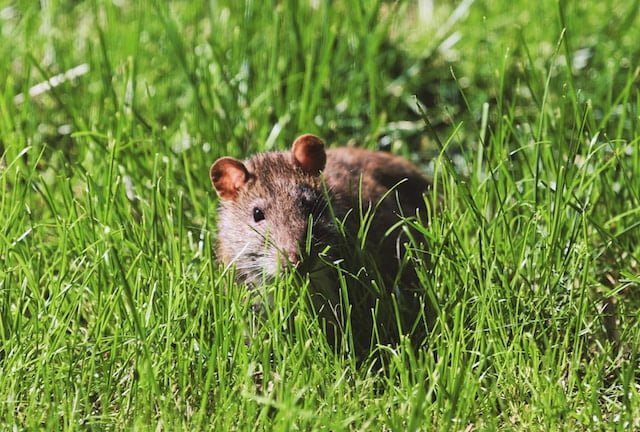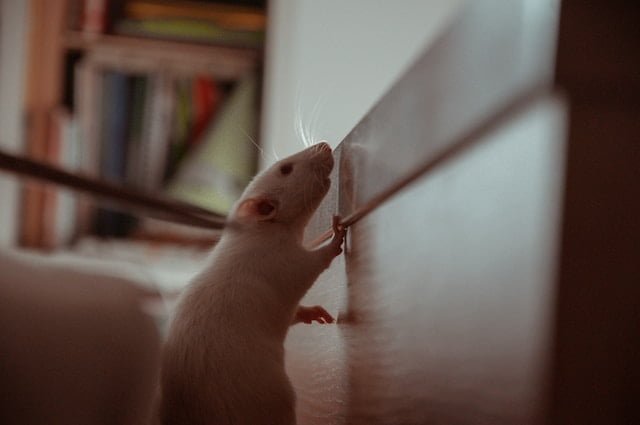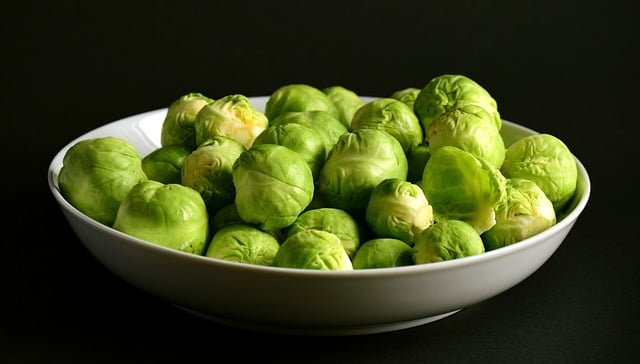Rats are known for their ability to eat almost anything. However, as a rat owner or someone who wants to feed rats, it is important to know what foods are safe for them to consume. One question that often arises is whether rats can eat Brussel sprouts.
The answer is yes, rats can eat Brussel sprouts. These small, leafy green vegetables are safe for rats to consume and can even provide some nutritional benefits. Brussel sprouts are a good source of vitamin C, vitamin K, and fiber, which can help support a rat’s overall health.
It is important to note that while Brussel sprouts are safe for rats to eat, they should still be given in moderation. Rats should have a balanced diet that includes a variety of fruits, vegetables, grains, and protein sources. Too much of any one food can cause digestive issues or other health problems.

Can Rats Eat Brussel Sprouts?
Brussel sprouts are a type of cruciferous vegetable that are packed with nutrients such as vitamin C, vitamin K, and fiber. As omnivores, rats can eat a wide variety of foods, including vegetables like brussel sprouts. However, it’s important to consider a few factors before feeding your pet rat this type of vegetable.
Firstly, rats have sensitive digestive systems and can experience digestive upset if they eat too much of a new food all at once. Therefore, it’s best to introduce brussel sprouts slowly and in small amounts to see how your rat’s body reacts.
Secondly, brussel sprouts contain a compound called goitrogens, which can interfere with thyroid function. While small amounts of goitrogenic foods are generally safe for rats, it’s important to not feed them too much of these types of vegetables.
Lastly, rats have a tendency to be picky eaters and may not enjoy the taste of brussel sprouts. If your rat doesn’t seem interested in this vegetable, it’s best to offer them other types of vegetables that they do enjoy.
Overall, rats can eat brussel sprouts in moderation as part of a balanced diet. However, it’s important to monitor their reaction to this vegetable and not overfeed them to avoid any negative health effects.
Nutritional Value of Brussel Sprouts
Brussel sprouts are a nutritious vegetable that can provide a variety of essential vitamins and minerals. Here are some of the key nutrients found in brussel sprouts:
- Vitamin C: Brussel sprouts are a good source of vitamin C, which is important for immune function, skin health, and wound healing.
- Vitamin K: Brussel sprouts are also high in vitamin K, which is important for bone health and blood clotting.
- Folate: Brussel sprouts are a good source of folate, which is important for cell growth and development.
- Fiber: Brussel sprouts are high in fiber, which can help promote digestive health and regulate blood sugar levels.
- Antioxidants: Brussel sprouts contain a variety of antioxidants, which can help protect against oxidative damage and reduce the risk of chronic diseases.
Overall, brussel sprouts are a healthy addition to any diet and can provide a variety of important nutrients. However, it is important to note that they should be consumed in moderation, as excessive consumption can lead to digestive issues.
Effects of Brussel Sprouts on Rats
When it comes to feeding rats, it is important to know what foods are safe for them to eat. Brussel sprouts are a popular vegetable among humans, but can rats eat them too? In this section, we will explore the effects of Brussel sprouts on rats.
Digestive Impact
Brussel sprouts are high in fiber, which can be beneficial for rats. However, too much fiber can cause digestive issues. Rats have a sensitive digestive system, and consuming too many Brussel sprouts can lead to diarrhea or constipation. It is important to feed Brussel sprouts to rats in moderation, and monitor their digestive health.
Long-term Health Effects
While Brussel sprouts are safe for rats to eat in moderation, there are some potential long-term health effects to consider. Brussel sprouts contain goitrogens, which can interfere with the production of thyroid hormones. This can lead to goiter, a condition where the thyroid gland becomes enlarged.
In addition, Brussel sprouts contain oxalates, which can lead to the formation of kidney stones in rats. Rats who are prone to kidney stones should avoid consuming Brussel sprouts altogether.
Overall, Brussel sprouts can be a healthy addition to a rat’s diet when fed in moderation. However, it is important to monitor their digestive health and be aware of the potential long-term health effects.

How to Serve Brussel Sprouts to Rats
When it comes to feeding rats, it’s important to provide them with a balanced diet that includes a variety of fruits and vegetables. Brussel sprouts are a nutritious vegetable that can be a great addition to your rat’s diet. Here are some tips on how to serve brussel sprouts to rats:
- Wash the brussel sprouts thoroughly: Before serving brussel sprouts to your rats, make sure to wash them thoroughly to remove any dirt or pesticides that may be present.
- Cut the brussel sprouts into small pieces: Rats have small mouths, so it’s important to cut the brussel sprouts into small pieces to make them easier to eat.
- Serve the brussel sprouts raw or cooked: Rats can eat brussel sprouts both raw and cooked. If you choose to cook the brussel sprouts, make sure to avoid using any seasonings or oils that may be harmful to your rat.
- Serve in moderation: While brussel sprouts are a nutritious vegetable, it’s important to serve them in moderation. Too much of any one food can upset your rat’s digestive system.
- Monitor your rat’s reaction: As with any new food, it’s important to monitor your rat’s reaction to brussel sprouts. If your rat experiences any digestive issues or other adverse reactions, discontinue feeding them brussel sprouts.
Overall, brussel sprouts can be a healthy and tasty addition to your rat’s diet when served in moderation and prepared properly.
Alternatives to Brussel Sprouts for Rats
While brussel sprouts can be a healthy addition to a rat’s diet, not all rats may enjoy them or tolerate them well. Fortunately, there are many other vegetables and fruits that rats can eat to ensure a balanced and nutritious diet.
Here are some alternatives to brussel sprouts that rats can enjoy:
- Leafy Greens: Rats love leafy greens such as spinach, kale, and lettuce. These are a great source of vitamins and minerals, and can be fed to rats daily.
- Root Vegetables: Carrots, sweet potatoes, and turnips are all great options for rats. These vegetables are high in fiber and provide a good source of vitamins and minerals.
- Berries: Rats love berries such as strawberries, blueberries, and raspberries. These are a great source of antioxidants and can be fed to rats as a treat.
- Squash: Rats can enjoy a variety of squash such as zucchini, butternut squash, and acorn squash. These vegetables are high in fiber and provide a good source of vitamins and minerals.
- Fruits: Rats can also enjoy a variety of fruits such as apples, bananas, and grapes. These fruits are a great source of vitamins and minerals, but should be fed to rats in moderation due to their high sugar content.
It is important to note that while these foods are safe for rats to eat, they should be introduced gradually and in small quantities to avoid digestive upset. Additionally, rats should always have access to fresh water and a high-quality rat food to ensure a balanced and nutritious diet.

Frequently Asked Questions
What fruits are safe for rats to eat?
Rats can safely consume a variety of fruits like apples, bananas, grapes, strawberries, and watermelon. However, it’s important to remember that fruits should be given in moderation as they contain high levels of natural sugars.
Can rats eat green beans?
Yes, green beans are safe for rats to eat. They are a good source of fiber and can be given as a healthy snack.
Is it safe for rats to consume cucumbers?
Cucumbers are safe for rats to eat and can provide a refreshing treat. However, it’s important to remove any seeds as they can be a choking hazard.
Are blueberries safe for rats to eat?
Yes, blueberries are safe for rats to eat and can provide a tasty and nutritious snack. They are a good source of antioxidants and vitamins.
Can rats eat pineapple?
Yes, rats can safely consume pineapple. However, it’s important to remove the tough outer skin and the core as they can be difficult to digest.
Can rabbits eat Brussel sprouts?
Yes, rabbits can eat Brussel sprouts. However, they should be given in moderation as they can cause gas and bloating if consumed in large quantities. It’s also important to introduce new foods slowly and monitor your rabbit’s reaction to them.





